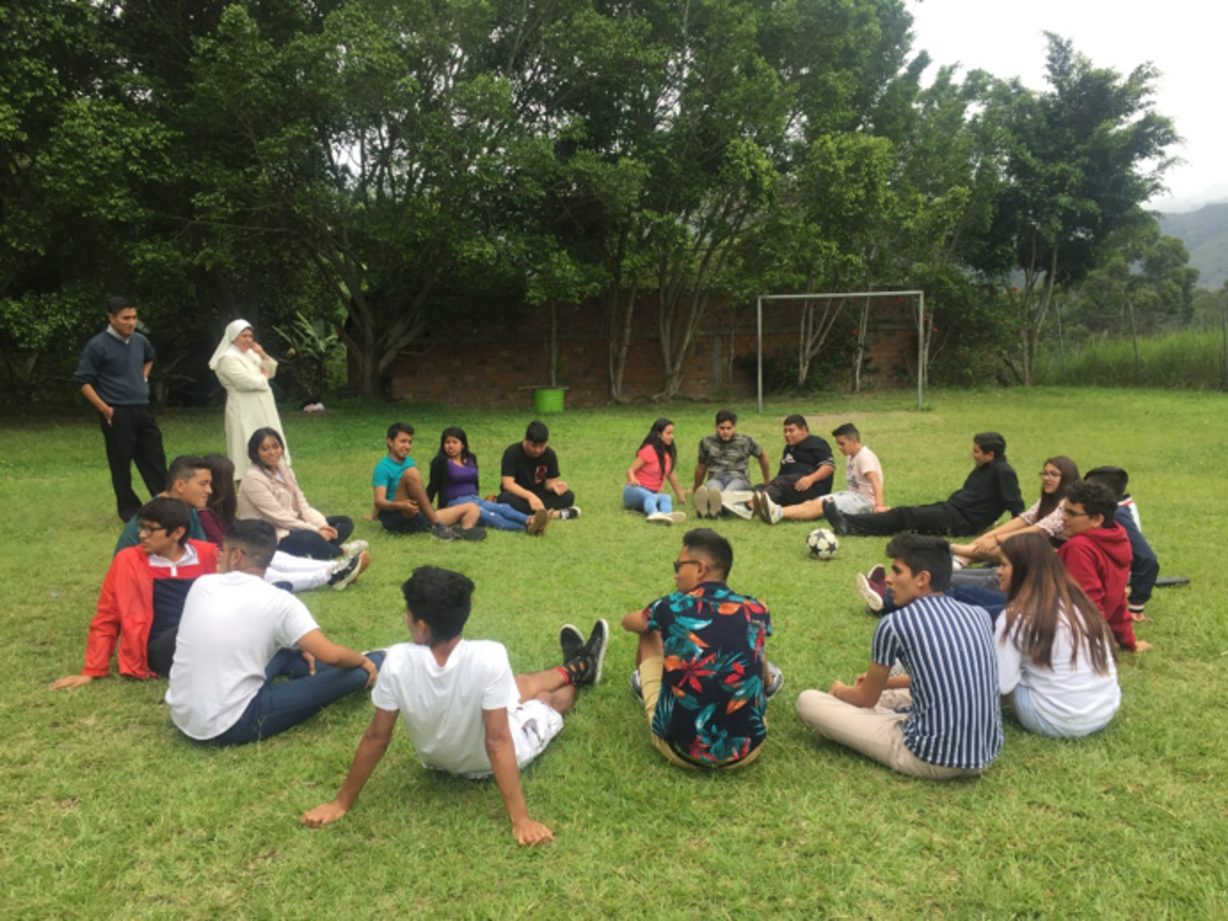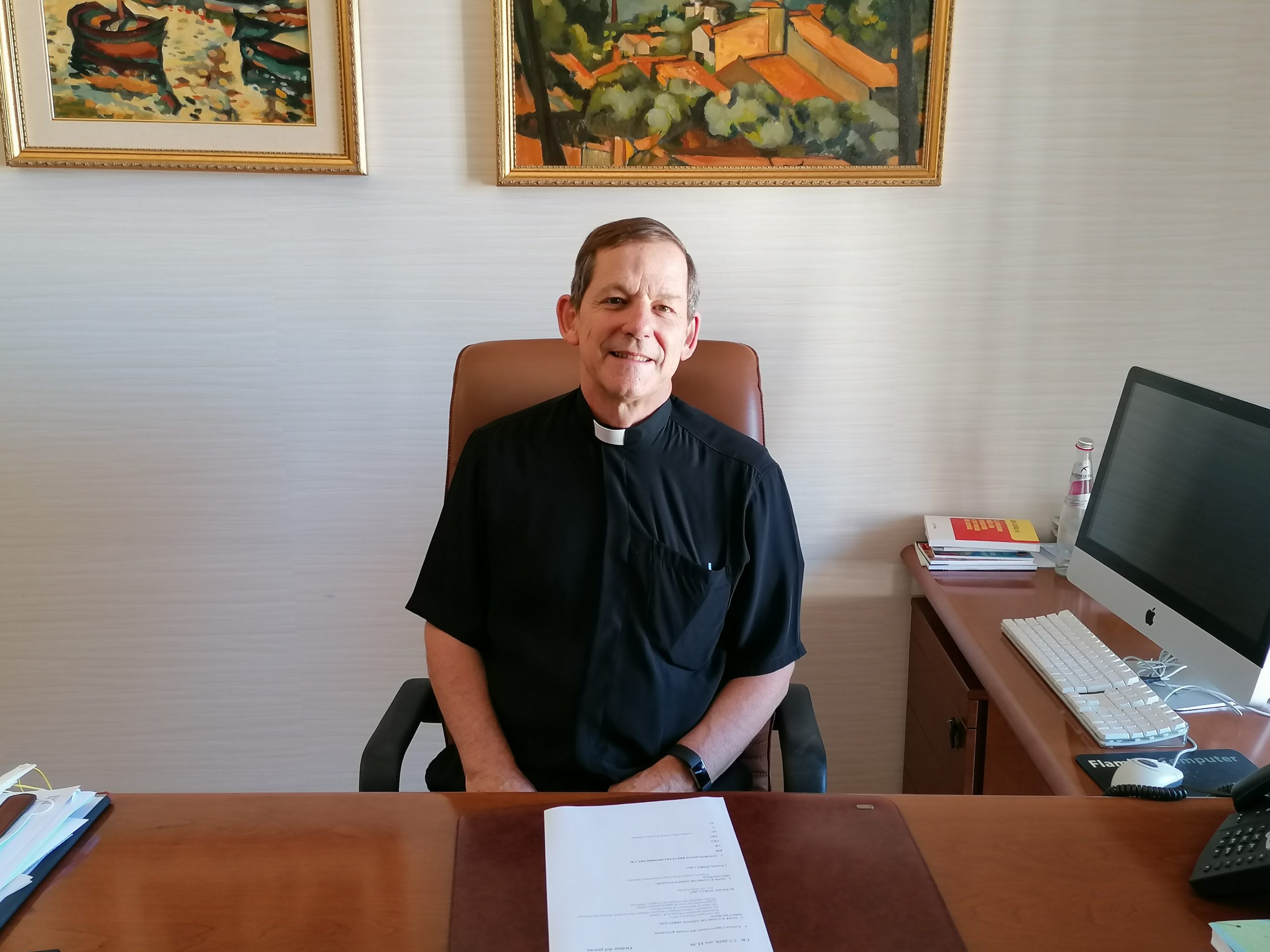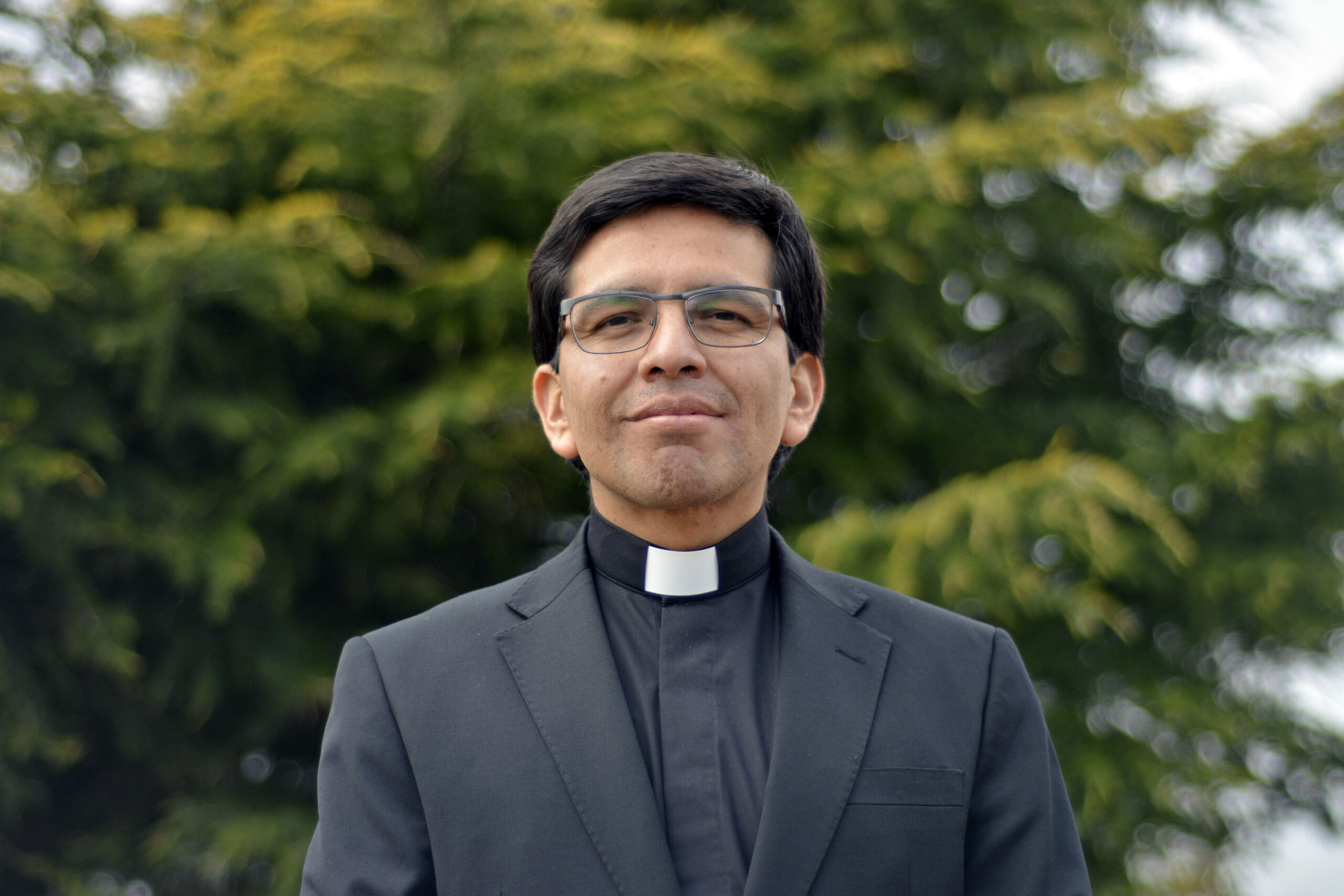Guido tells us his testimony: From the Andes to Rome.
The place where I come from - comments - is located at the southwestern end of the Republic of Ecuador, in the Low Andes, receiving greater influence from the Pacific and the Amazon, giving it a great flora and fauna in the place.
My father is Santos Agustín Chalaco Torres and my mother is Corina Jaramillo González. We are three brothers and I am the youngest.
My family has always been very Catholic, so my vocation was born in the same family context. My mother is a catechist and as a child I always saw her as cheerful.
Personally, I never planned to become a priest. What's more, I always had a bad conception of the priest, I defined him as a strange, serious, annoying being who shared little with others, that is to say, a guy out of the ordinary.
My adolescence at school was very normal like other young people, with high expectations and ideals. I played and still play soccer, the passionate sport of my life. I also went out to the countryside, I liked walks, outdoor meals, serenades, dances, meetings and very healthy fun with other young teenagers of my age. I even had a youthful girlfriend.
But then, my concept of the priesthood changed. Something happened that caused me admiration. At a certain moment some seminarians came to my parish with a priest and I observed in them the opposite of the ideas I had formed in my head.
The young seminarians played soccer! What's more, the priest was dressed in sweatpants and also played soccer. I saw them always cheerful, sharing with the young people, singing with the guitar the modern popular songs of the moment, and of course, also religious music.
They told me a little about the priesthood and what seminary life was like. Despite the joy they radiated, I had not considered a vocation and had not changed my idea of being a good professional.
I carried out my academic formation process at the Marist Educational Unit-Macará, run by the Marist Brothers community, where I graduated with a Bachelor's degree in Science, specializing in Physics and Mathematics.
In this educational center I had the opportunity to be part of the student council, to form youth groups, but also - and of course - in the sports part, integrating the soccer team.
After finishing my studies, I worked in various fields: agriculture, printing, commerce. In addition, I collaborated in the parish catechesis, where I had a pleasant experience working with children and young people of the parish.
I identified myself with the integration and formation of youth groups both in the religious environment and in the sports environment, which has served me very well in my life.
These parish youth groups were the path that God put me on to call me to Him. It was on one of these occasions that the pastor of my town invited me to play soccer with other young people.
After a game, the parish priest invited me to help him in catechesis with some children of Christian initiation, something that at first caused me some nerves.
However, when another young man participated in these catechesis classes, I felt more motivated and I finished that year thinking that I really liked the pastoral work that was done with the priest.
From this experience, an idea began to haunt my head: Why not become a priest? But I still wanted to start a family, have a profession, earn money, have projects, go to university, etc., etc... But everyone does this! And me, why not be something different? Why not become a priest?

Guido Gualberto Chalaco Jaramillo was born in Macará, Ecuador. Soccer and parish youth groups were the way God called me. "It was on one of these occasions that the pastor of my town invited me to play soccer with other young people," he says. Since then, he has not given up this hobby.
"I have been in the priestly ministry for three years now and I can say that one never stops learning... Everything is learning and everything enriches, because along the way I have been able to see that one thing is study and formation in the seminary and another is reality, that is, daily life," he says.
When I expressed my thoughts to the parish priest, he proposed that I take part in a vocational coexistence, I was very pleased to have the opportunity to attend and share, with a group of young people, the vocational process.
And at that moment I had a great opportunity, or rather, a great blessing: to meet Father Armando Jiménez (now deceased), at that time pastor of San José de Loja, the capital of my province, who motivated me and strengthened my vocation to the priestly life.
I have fond memories of him because he has been my spiritual director and has sustained me in my priestly lifeas the time was approaching to make a final decision.
The time has come to enter the Seminar. I remember that I could not sleep that night thinking about the future, about the prospect of changing my life forever... I entered and the first few days I was a little nervous about getting to know a new reality.
This experience changed my idea of the formation center and the priesthood. This negative conception of the seminary turned into a totally active life with certain itineraries to be formed as a priest: work, study, sports, prayer, pastoral, community life, etc.
The keys to life in the Seminary are discipline, sincerity and availability for formation.
During the seven years of formation, I let myself be helped by my parents and my spiritual director and, of course, there were vocational crises, as is normal... I considered leaving the seminary, but I always managed to overcome each situation, thanks to the help of good people.
So I can say that the best stage of my life, although with doubts and difficulties, has been the Seminar.It is a place where I met many friends and shared my vocation with them. It is a joy that is too short to describe.
I have been in priestly ministry for three years and I can say that one never stops learning.... Everything is learning and everything is enriching, because along the way I have been able to see that one thing is study and formation in the seminary and another is reality, that is, daily life.
As a deacon and then as a priest, I have been collaborating in various parishes in my diocese and therefore my vocation has been strengthened, especially, once again, thanks to the young people.
But in this case I did not face only the problems, demands and challenges of youthful life. I had great teachers, the heritage of people older than me with great experience.
Also, the Bishop invited me to collaborate in the vocation ministry of the Diocese of Loja, a pastoral assignment that I carried out before moving to Rome.
I had to travel through part of the Province of Loja, getting to know its parishes looking for young men for the priestly life, a work that I have done with pleasure and dedication and always convinced that the owner of the vocation is God and that I am an instrument.
The keys to life in the Seminary are discipline, sincerity and availability for formation.I can say that the best stage of my life, although with doubts and difficulties, has been the Seminary".
While touring the Province of Loja I was able to observe the main problems of my country and also of the local Church: mainly emigration abroad, especially to Europe and the United States, due to the lack of work and the lack of economic stability.
And this is a tragedy, because it has caused the destruction of families in general, children who have grown up without a father figure - and in some cases not even a mother - producing more poverty, little investment in education by governments, more child and youth vulnerability, pregnancies at an early age, young people who drop out of school.
In the face of all this, the Church has initiated a path to combat all these fronts, as far as possible, in particular by implementing and strengthening parish Caritas centers.
Also, increasing the formation in values by means of retreats, youth coexistence in those educational centers that are in charge of the Church. This also generates that religious, pastoral agents, priests should be trained for this formative mission.
Because the The consecrated person must have clear and convincing guidelines to establish a dialogue with people.
It is for this reason that I decided, with the advice of my superiors, to apply for a scholarship. I considered, therefore, that the formation of the priest is important to better serve the people.
A well-trained priest helps the people and is a point of reference in the community where he serves.This is especially true in a world where there is a latent need to respond to the demands of faith and daily life. For this reason, the consecrated person must have clear and convincing guidelines to establish a dialogue with people.
I have chosen the Pontifical University of the Holy Cross, because I have considered an institution with experience in the degree that I am undertaking, Canon Law, for my personal formation, to put it at the service of the Diocese in the place that I am entrusted.
As for the experience in Rome, it has been one of the most difficult decisions of my life. Studying for a degree in Canon Law in a different culture, one of the subjects that I love in a very personal way.
But it has been a very good experience. I have met different priests from different dioceses of the world, with their cultures. Being able to live in a priestly school, such as Collegio Tiberino, has helped me personally to work on fraternity.
When you arrive in Rome, you have to leave everything behind: God asks you to be more demanding and humble, you become like a child who is beginning to get to know a new life and a new culture.
But I want to tell you that many times we are afraid of losing: of losing our life, our loved ones, our present comfort. And for fear of losing, we do not dare to move forward, because we often distrust God.
However, if we face life in this way, we will be defeated by it. For that, let us let God into our life... May His help be manifested by various means of Providence, as, in my case, my dear benefactors of CARF - Centro Academico Romano Foundation.
God always has something good in store for us and we should not distrust him. So I want to end with a special remembrance, in my prayer, for the people who are helping me financially to achieve this goal, the friends of CARF.
"The consecrated person must have clear and convincing guidelines to establish a dialogue with people."
Gerardo Ferrara
BA in History and Political Science, specializing in the Middle East.
Responsible for the student body
University of the Holy Cross in Rome

